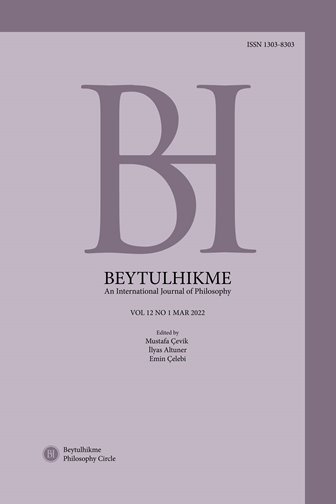Author :
Abstract
Problematoloji kuramının kurucusu çağdaş filozof Michel Meyer bir önermenin daima hem arkasındaki hem önündeki sorular bağlamında anlaşılması gerektiğini savunur. Arkadaki soru önermenin cevapladığı, öndeki soru ise bu cevabın yol açtığı yeni sorudur. Fakat Batı felsefesi bu sorgulama mantığını daima bastırarak cevap odaklı bir anlayış geliştirmiştir. Bu bastırma Platon’la başlamıştır, zira anımsama teorisiyle sorular, insanda zaten bulunan bir hakikatin keşfi için geçici araçlara indirgenmiştir. Fakat çağdaş Platon uzmanı Monique Dixsaut farklı bir yaklaşım sunar: Platon’un hakikat kuramı sorgulamanın ve cevaplamanın kesişiminde yer aldığı için, cevaplar sadece daima devam eden bir sorgulama diyalektiği içerisinde anlamlıdır. Zira yeni okurun doğru cevabı temellük edebilmesi için, bu cevap ona yeni sorular sormalıdır. Böylece gayemiz, bir taraftan nihai cevapların sorgulamayı bitirdiğini, diğer taraftan sorgulamanın devam etmesinin nihai cevaba engel olduğunu savunan iki yaklaşıma karşı çıkarak, doğru cevaba rağmen sorgulamanın devamının mümkün olduğunu savunmaktır.
Keywords
Abstract
Contemporary philosopher Michel Meyer, who developed the theory of problematology, argues that a proposition should always be understood through both the questions behind and in front of it. The upstream question is the one answered by the proposition, and the downstream one is the new question produced by the answer. However, Western philosophy has always repressed this logic of questioning and developed an answer-oriented understanding. This repression began with Plato, because with the theory of reminiscence, questions were reduced to temporary tools for the discovery of a truth that was already in the soul. But contemporary Plato scholar Monique Dixsaut offers a different approach: as Plato’s theory of truth lies at the intersection of questioning and answering, responses only have meaning in a perpetual dialectic of questioning. Because, so that the new reader can appropriate the correct answer, this answer must pose new questions to him. Thus, our objective is to maintain that it is possible to continue the questioning process despite the correct answer, against the two approaches which maintain, on the one hand, that the final answers put an end to the questioning, and on the other hand, that the continuation of questioning is an obstacle to a final answer.
Keywords
- Abel, O. (1992). La métaphore, réponse et question. Le livre de traverse. De l’exégèse biblique à l’anthropologie. Yay. O. Abel, F. Smyth. Paris: Cerf, 23-41.
- Abel, O. (2000). L’éthique interrogative. Herméneutique et problématologie de notre con- dition langagière. Paris: PUF.
- Augustinus (2010). İtiraflar. Çev. Ç. Dürüşken. İstanbul: Kabalcı.
- Deleuze, G. (1962). Nietzsche et la philosophie. Paris: PUF.
- Dixsaut, M. (1994). Le naturel philosophe. Essai sur les dialogues de Platon. Paris: Vrin, Les Belles Lettres.
- Dixsaut, M. (2003). Platon. Paris: Vrin.
- Dixsaut, M. (2000). Platon et la question de la pensée: études platoniciennes, c. 1. Paris: Vrin.
- Gadamer, H.-G. (2009) Hakikat ve Yöntem. 2. c.. Çev. H. Arslan, İ. Yavuzcan. İstan- bul: Paradigma Yayıncılık.
- Hadot, P. (1995). Qu’est-ce que la philosophie antique ? Paris: Gallimard (Folio).
- Hirsch, E. D (1967). Validity in Interpretation, New Haven: Yale University Press.
- Macé, A. (2011). L’origine du questionnement : À propos de la lecture de Platon et Aristote par Michel Meyer. Revue internationale de philosophie (257), 17-46.
- Meyer, M. (1986). De la problématologie. Bruxelles: Mardaga, (Livre de poche).
- Meyer, M. (2010). La problématologie. Paris: Vrin (Que-sais-je ?).
- Meyer, M. (2005-2006), Qu'est-ce que la problématologie ? Argumentum: Journal of the Seminar of Discursive Logic, Argumentation Theory and Rhetoric, (4), 7-14.
- Meyer, M. (2009). Retorik, İstanbul: Dost Kitabevi.
- Platon (2020a). Euthydemos ve Parmenides. (Çev. F. Akderin). İstanbul: Say.
- Platon (2019). Phaidon. (Çev. F. Akderin). İstanbul: Say.
- Platon (2020b). Phaidros. (Çev. F. Akderin). İstanbul: Say.
- Platon (2012). Sofist. (Çev. F. Akderin). İstanbul: Say.
- Platon (2016). Theaitetos. (Çev. B. Akar). İstanbul: Bilgesu.
- Ricoeur, P. (2013). Zaman ve Anlatı 4. Anlatılan (Öykülenen) Zaman. Çev. U. Öksü- zan, A. Altinörs. İstanbul: Yapi Kredi Yayınları.
- Varlık, S. (2017). Negatif Hermeneutik ve Sonsuz Yorum Sorunu. Cogito, “Hermene- utik”, 89.
- Varlık, S. (2021). Paul Ricoeur’de Temellük ve Tahayyül. İstanbul: Alfa Yayınları. Öz: Problematoloji kuramının kurucusu çağdaş filozof Michel Meyer bir önermenin daima hem arkasındaki hem önündeki sorular bağlamında anlaşılması gerektiğini savunur. Arkadaki soru önermenin cevapladığı, öndeki soru ise bu cevabın yol açtığı yeni sorudur. Fakat Batı felsefesi bu sorgulama mantığını daima bastırarak cevap odaklı bir anlayış geliştirmiştir. Bu bastırma Platon’la başlamıştır, zira anımsama teorisiyle sorular, insanda zaten bulunan bir hakikatin keşfi için geçici araçlara indirgenmiştir. Fakat çağdaş Platon uzmanı Monique Dixsaut farklı bir yaklaşım sunar: Platon’un hakikat kuramı sorgulamanın ve cevaplamanın kesişiminde yer aldığı için, cevaplar sadece daima devam eden bir sorgulama diyalektiği içerisinde anlamlıdır. Zira yeni okurun doğru cevabı temellük edebil- mesi için, bu cevap ona yeni sorular sormalıdır. Böylece gayemiz, bir taraftan nihai cevapların sorgulamayı bitirdiğini, diğer taraftan sorgulamanın devam etmesinin nihai cevaba engel olduğunu savunan iki yaklaşıma karşı çıkarak, doğru cevaba rağmen sorgulamanın devamının mümkün olduğunu savunmaktır. Anahtar Kelimeler: Platon, Michel Meyer, Monique Dixsaut, problematoloji, sorgulama, cevaplama.
